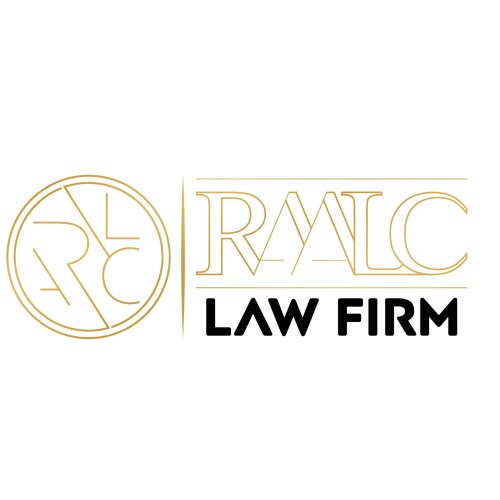Best Housing, Construction & Development Lawyers in United Arab Emirates
Share your needs with us, get contacted by law firms.
Free. Takes 2 min.
Free Guide to Hiring a Real Estate Lawyer
Or refine your search by selecting a city:
List of the best lawyers in United Arab Emirates
United Arab Emirates Housing, Construction & Development Legal Questions answered by Lawyers
Browse our 1 legal question about Housing, Construction & Development in United Arab Emirates and read the lawyer answers, or ask your own questions for free.
- Land Purchase
- Hi, I hope all is well. Just want to consult/clarify below. Our house is built on the land where to our knowledge it is ours (40 years), and lately, someone is telling/claiming that it is theirs which is our relatives also. Lately, they have distributed it to the relatives they... Read more →
-
Lawyer answer by HHS Lawyers And Legal Consultants
If the land has been occupied by your family for decades but there is no title deed and only an old tax declaration in a relative's name, ownership can become legally disputed. A tax declaration alone usually does not prove...
Read full answer
About Housing, Construction & Development Law in United Arab Emirates
The United Arab Emirates (UAE) is known for its rapidly evolving skyline and ambitious infrastructure projects. The nation's legal landscape in housing, construction, and development is designed to support its ambitious development goals while ensuring an orderly and regulated market. The laws governing these sectors in the UAE provide a framework for construction, development, real estate transactions, property ownership, tenancy agreements, and dispute resolution, among others. The legal structure is largely influenced by civil law, with some elements borrowed from Sharia law, and it is meant to protect tenants, landlords, developers, and investors' interests alike.
Why You May Need a Lawyer
Engaging a lawyer in the field of housing, construction, and development in the UAE is crucial for several reasons. Common situations where legal assistance may be required include:
- Contractual Disputes: Negotiating or resolving disputes related to contracts for construction, sale, lease, etc.
- Property Transactions: Ensuring compliance with legal requirements in property sales or purchases.
- Construction Permits and Regulations: Navigating the complex regulatory environment for obtaining necessary building permits and approvals.
- Tenancy Issues: Handling disputes between landlords and tenants, including eviction proceedings and rental agreement compliance.
- Development Projects: Assisting with land acquisition, zoning issues, and other aspects of large-scale development projects.
- Real Estate Litigation: Representing parties in lawsuits related to real estate issues.
Local Laws Overview
The UAE has a distinct set of local laws concerning housing, construction, and development. Here are some key aspects:
- Federal Law No. 5 of 1985 (Civil Transactions Law): Governs general contractual obligations, including construction contracts.
- Federal Law No. 11 of 1992 (Civil Procedure Code): Sets procedures for civil litigation.
- Real Estate Regulatory Agency (RERA) Regulations: Provides guidelines for property transactions and tenancy issues, particularly in Dubai.
- Federal Law No. 6 of 2017 on the Ownership of Real Property by Foreigners: Regulates property ownership rights for non-UAE nationals.
- Local Municipality Codes: Each emirate has codes governing building and construction standards, such as building permits and safety regulations.
Frequently Asked Questions
1. Can foreigners own property in the UAE?
Yes, foreigners can own property in designated freehold areas in the UAE. The regulations vary by emirate, with Dubai offering the most liberal property ownership laws for expatriates.
2. What are freehold and leasehold properties?
Freehold properties grant full ownership of the property and the land on which it stands. Leasehold properties allow ownership for a period of up to 99 years, after which the ownership reverts to the landowner.
3. What should be included in a construction contract?
A comprehensive construction contract should include scope of work, timelines, payment terms, responsibilities of the parties, dispute resolution mechanisms, and compliance with applicable laws.
4. How do I resolve a dispute with my landlord?
Disputes between landlords and tenants can be addressed through the rental dispute centers established in each emirate. Mediation is often the first step, with arbitration or litigation as subsequent options if necessary.
5. What are the penalties for not adhering to building regulations?
Non-compliance with building codes can result in fines, suspension of construction, or even demolition of unauthorized structures, depending on the severity of the violation.
6. Is it mandatory to register my property with the local authorities?
Yes, property registration with the appropriate land department in the emirate is mandatory to ensure legal ownership and protect against claims of ownership by others.
7. How can I obtain a construction permit in the UAE?
Obtaining a construction permit typically involves submitting architectural drawings, compliance certificates, and other required documents to the respective emirate's municipality for approval.
8. What is the role of RERA in the UAE?
The Real Estate Regulatory Agency (RERA) regulates the real estate sector in Dubai, ensuring adherence to fair practices, and fostering a stable real estate market through guidelines and dispute resolution services.
9. Can I terminate a construction contract early?
Terminating a construction contract generally requires adherence to the termination clauses agreed upon in the contract. If clauses are absent or insufficient, parties may seek legal adjudication.
10. What is the eviction process for tenants?
The eviction process involves notifying the tenant per lease agreement or RERA guidelines, and if necessary, lodging a case with the rental dispute center to obtain a legal eviction order.
Additional Resources
Here are some resources, governmental bodies, and organizations related to housing, construction, and development in the UAE:
- Real Estate Regulatory Agency (RERA): Offers services and guidance related to real estate in Dubai.
- Dubai Land Department (DLD): Handles property registration and regulation in Dubai.
- Abu Dhabi Municipality: Provides building permits and oversees construction regulations in Abu Dhabi.
- Sharjah Urban Planning Council: Governs urban planning and construction in Sharjah.
- Federal Competitiveness and Statistics Centre: Offers analytics and reports on the UAE's development sector.
Next Steps
If you need legal assistance in housing, construction, or development in the UAE, consider these steps:
- Identify Your Needs: Clearly define the legal issue or requirement you are facing.
- Engage a Specialized Lawyer: Seek out legal professionals with expertise in UAE housing, construction, and real estate law.
- Consultations: Schedule consultations to understand the legal implications of your case and explore options.
- Document Review: Have your contracts and legal documents reviewed for compliance and enforceability.
- Plan Your Strategy: Work with your lawyer to develop a strategy for negotiation, litigation, or dispute resolution, as appropriate.
Lawzana helps you find the best lawyers and law firms in United Arab Emirates through a curated and pre-screened list of qualified legal professionals. Our platform offers rankings and detailed profiles of attorneys and law firms, allowing you to compare based on practice areas, including Housing, Construction & Development, experience, and client feedback.
Each profile includes a description of the firm's areas of practice, client reviews, team members and partners, year of establishment, spoken languages, office locations, contact information, social media presence, and any published articles or resources. Most firms on our platform speak English and are experienced in both local and international legal matters.
Get a quote from top-rated law firms in United Arab Emirates — quickly, securely, and without unnecessary hassle.
Disclaimer:
The information provided on this page is for general informational purposes only and does not constitute legal advice. While we strive to ensure the accuracy and relevance of the content, legal information may change over time, and interpretations of the law can vary. You should always consult with a qualified legal professional for advice specific to your situation.
We disclaim all liability for actions taken or not taken based on the content of this page. If you believe any information is incorrect or outdated, please contact us, and we will review and update it where appropriate.
Browse housing, construction & development law firms by city in United Arab Emirates
Refine your search by selecting a city.

















